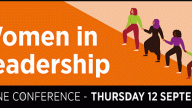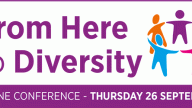EEDI (Equality, Equity, Diversity and Inclusivity) and Wellbeing Hub
Sticks and stones may break my bones, but words will disempower me
Shak Rafiq explores the importance of developing your language so it matches the times around you.
Recent events have shown that the powerful and negative effect of words and phrases to share mis and disinformation has repercussions for people’s lives. Words, if used rightly, can empower and if used carelessly can have the opposite impact. At its best, language can inspire movements for positive change by creating a sense of belonging, at its worst it can lead to a polarised and dangerous world.
Words do harm me
If you think words are only ‘just words’ then it is worth reading some studies into the physical impact words can have. In this research ‘Do People Get Used to Insulting Language?’ (Psychology of Language, 2022), researchers show that the impact of insults could cause the same level of pain as ‘mini-slaps to the face.’ And in this review of “The Souls of White Jokes: How Racist Humor Fuels White Supremacy” (Stanford University, 2022), it concludes that “these jokes create and reaffirm existing group identities and social positions, reinforce stereotypes and discriminatory practices, and allow institutions (i.e. media) to control the discourse of racial superiority and inferiority.”
Language and attitudes evolve
My colleague Sophie DiMauro led on developing our inclusive language guide, with the simple aim to produce something that helps reduce the inequalities perpetuated by words and language that are intended or designed to disempower or ‘other’ communities and people. So, how did we co-produce a guide working with those that could be affected by language that is archaic or encourages stigma, discrimination or any form of bias?
It was handy that we had inspiration from this rather excellent inclusive language guide developed by Oxfam. We knew we wanted a guide that worked for our local health and care partnership and one that we could work with our own staff networks to get right.
I say get right, we may have got it right for now (please tell us if we haven’t) but language evolves as do communities. When developing our guide, we have had to find common ground at times among people who may appear to be from the same group, this has been a useful exercise and a reminder that there is no such thing as homogeneous groups.
The language of inclusion today, may not be the language of inclusion tomorrow. I know I have made and I will most likely will, make mistakes again despite all the best intent. This is why our inclusive language guide will have an annual review cycle.
We also know that attitudes change, including in those communities that have witnessed first hand the power of language to reinforce negative views and biases. Sometimes this attitude means people reclaim words and use them to reclaim power. As an example, in our inclusive language guide we have used the word ‘queer’ but have highlighted that not everyone who identifies as being part of the LGBTQ+ community feels comfortable with this.
Attitudes change, behaviours change but for some people past traumas still prevail. Our guide has a simple premise throughout, ask people how they would like to be referred to. This allows us to be curious and find out more, the journey to being inclusive will include a few bumps – navigating them will help you even if it feels awkward at the time.
A culture of belonging
Inclusion and belonging have long been proven to be drivers to organisational success as well as individual attainment. This piece by Kim Samuel on the Power of Belonging (Psychology Today, 2023), describes how Maslow’s hierarchy of need places belonging just after the needs for food, clothing, shelter, and physical safety.
If belonging has this level of importance to us as human beings as well as to us as organisations, how do we create a culture that encourages this? The starting point is about sharing power by using words and language that include, empower and encourage involvement.
To create psychologically safe spaces, we have to ensure everyone feels included, valued and listened to. This starts with conscious efforts to include everyone through inclusive language as well as actions. As our guide highlights, it is about being authentic, being quick to apologise when you haven’t got it right and being conscious in the words you use.
A culture of belonging starts with a culture of inclusive language and a celebration of our diverse identities. Sticks and stones may well break our bones, but inclusive language can and should empower us.
Download our inclusive language guide and join us on our journey http://www.bit.ly/InclusiveLanguageBDC
To learn more about inclusive language, join us at our From Here to Diversity conference, on Thursday 26 September, where Shak will lead a session on this essential topic. Learn more and register here.


